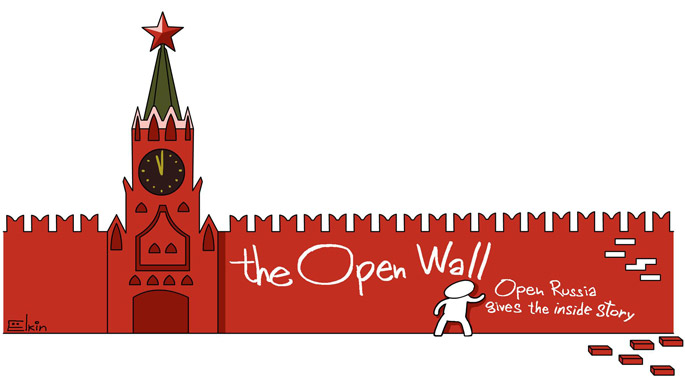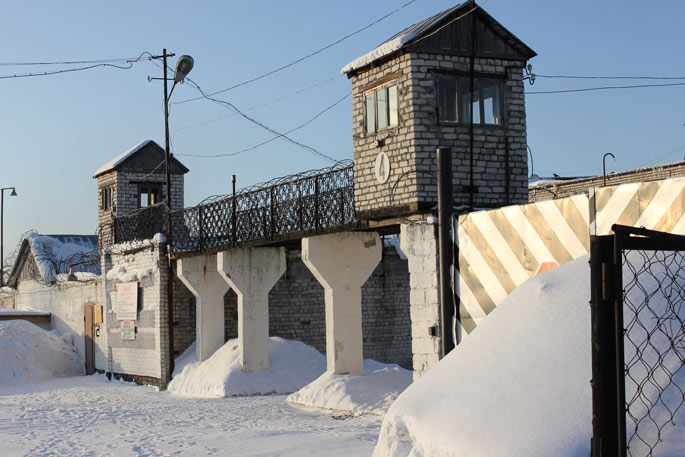Torture as routine

Torture as routine
Perhaps it really is true that you can judge a country by its prison system…

Ildar Dadin, who had previously been held administratively liable for staging peaceful protests and single-person pickets, became the first Russian citizen to be convicted for “repeated violations of the rules on conducting public events” under article 212.1 of Russia’s Criminal Code. In December 2015 Dadin was sentenced to three years’ imprisonment (Moscow City Court subsequently reduced the sentence by a mere six months). Amnesty International immediately declared Dadin a prisoner of conscience, while Human Rights Watch (HRW) is attempting to secure his immediate release.
The first media reports of Dadin’s being tortured in Karelia’s Penal Colony No. 7 surfaced on November 1. The activist insisted in a letter that he’d been beaten ever since he arrived at the colony – beaten not only by rank-and-file guards but by the colony chief himself. These selfsame individuals threatened Dadin with murder and rape and, lest anyone doubt their thirst for atrocity, cuffed his hands behind his back and hung him up by the handcuffs for half an hour at a time. “Being suspended like that hurts your wrists like hell,” said Dadin. “You get dislocated elbow joints and horrific back pain.”
After the publication of these allegations in the media, prison guards of all ranks rushed to inform their superiors that there were no signs of abuse on the prisoner’s body, while Dadin was visited by Moscow investigators, the human rights ombudsman and members of the Presidential Council for Human Rights. Presidential press secretary Dmitry Peskov, for his part, pledged to report the incident to Vladimir Putin.
Nine days after the publication of his letter, Ildar Dadin’s wife, Anastasia, came to see him. She’d previously seen her husband in late August, and now found him appallingly transformed: “His hands are shaking, his lip and cheeks twitch constantly. He starts to say something and suddenly he’s gasping for breath, he can’t get the words out. He said he’s been like this ever since he was hung up by the arms. Ildar looks just like my 80-year-old grandfather looked after he’d had a stroke.”
Writing to Ildar’s dictation, Anastasia filled up half a notebook with jottings; new and horrific details of the activist’s ordeal were published in the media on November 11:
On the sadists’ persistence: They beat you until you collapse. When you get up they beat you again until you agree with whatever they’re saying.They tell you, for example, ‘You’re a nonentity, you’re a faggot,’ and you have to answer, ‘I’m a nonentity, I’m a faggot.’ Being an oppositionist, I was forced to say ‘Putin is our president.’”
Having read Dadin’s second letter, political analyst, historian and journalist Sergei Medvedev made no bones about its significance on Facebook: “This, I believe, is the most important text of the year, and I don’t know how I’m going to live with this knowledge. It’s as if the inhabitants of a Polish village suddenly found out they were living a stone’s throw from Auschwitz.”
A few days later, Sergei Medvedev organised a discussion of Dadin’s horrifying missives on Radio Liberty, but one of his studio guests, journalist Yevgeny Levkovich, explained to Medvedev that the country at large wasn’t likely to share in his emotions: “People in general couldn’t care any less about this. The problem is that we live in a very narrow informational space … I assure you that if you take to the streets right now and start asking people who Ildar Dadin is, you’ll get a reply from two people out of a hundred, and one of the two will get their wires crossed somehow.”
Yet the “Dadin case” isn’t surrounded by a dead wall of social indifference. Some Russian netizens, in fact, are brazen in their antipathy to the oppositionist.
Ivan Belousov: “I have no pity whatsoever for him, this is just another cry for attention. We in Russia don’t need these Western-funded rights campaigners. It’s a prison, not a holiday resort – that’s the way it should be.”
Maxim T: “It’s probably just another PR stunt on his [Dadin’s] part – trying to wheedle himself a TV for his cell or some other perk he’d got used to on the outside.”
But no chorus of ill-wishers can negate the fact that, in his rebellion against the system, Ildar Dadin resembles no one quite so much as the late Sergei Magnitsky. Both are principled, uncompromising individuals. Even their respective manners of conduct while behind bars have much in common. “Sergei had no instinct for self-preservation,” Magnitsky’s aunt told reporters following his death. “He wasn’t thinking about survival – he was just fighting for the observance of the law as he understood it.”
By the same token, Ildar Dadin expresses a distinct unwillingness to seek a transfer from the Karelian colony, and justifies it in these terms: “We’ve got Moskalkova and Presidential Council members coming here, and yet they continue beating people regardless. […] I don’t know what’s going to happen to these people once I leave here. If I do leave, the colony will cease to be of particular interest to the press and human rights activists.”
We can only hope that Western governments will never have to compile a “Dadin List.”



